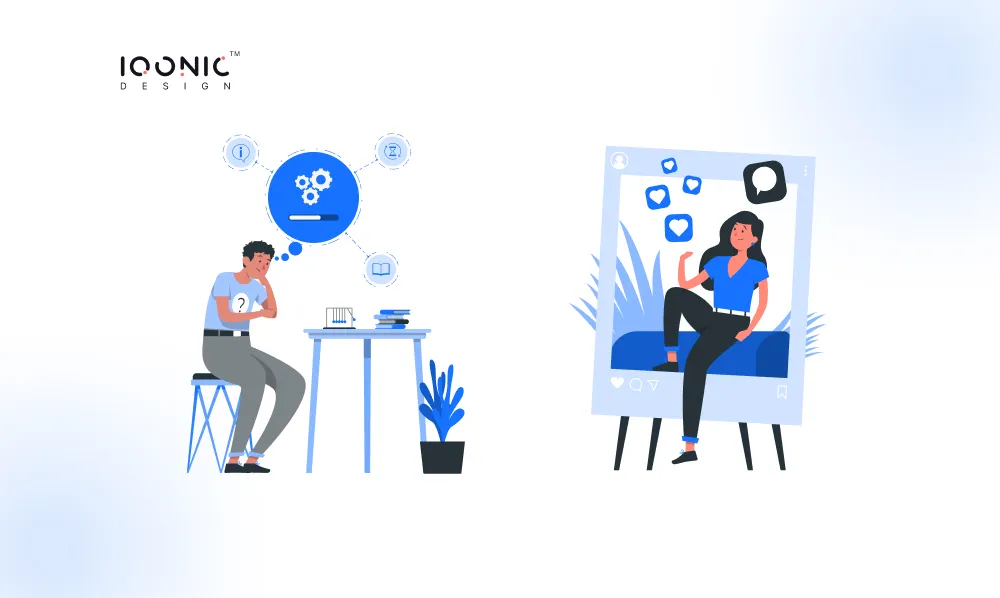
How to Develop an Influencer Marketing Platform: Process, Features, and Costs
Influencer marketing platforms are online spaces where brands collaborate with individuals with a significant social media following. These platforms serve as bridges, connecting brands with influencers to promote products or services. Developing an influencer marketing platform is crucial for businesses aiming to expand their reach on social media.
The significance lies in the platform’s ability to leverage the trust influencers have built with their audience. By partnering with influencers, brands gain access to a more engaged audience, increasing brand awareness and credibility. Influencer marketing grows as the digital landscape evolves, becoming a powerful strategy for brands to connect with their target audience.
Process of Developing an Influencer Marketing Platform

Developing an influencer marketing platform involves crucial steps to ensure its success.
Market Research and Planning
- Begin with thorough market research to understand the trends and demands in influencer marketing.
- Identify your target audience and the influencers that resonate with them.
- Plan the platform’s features based on user needs and industry requirements.
Technological Aspects and Technology Stack
- Explore the technological aspects, starting with choosing the right technology stack.
- Select a robust backend framework and a scalable database to handle user data efficiently.
- Incorporate API integrations for social media platforms to facilitate seamless collaboration with influencers.
Development Process and Best Practices
- Detail the development process, starting with creating a user-friendly interface.
- Implement features such as user profiles, analytics, and secure payment systems.
- Utilize agile development methodologies for flexibility and adaptability.
- Ensure data privacy and security measures are in place, complying with industry standards.
Costs Involved
Developing an influencer marketing platform comes with varied costs, and understanding these is essential for effective budgeting and successful project completion.

Development Cost Range
- The development cost of an influencer marketing platform typically varies between $40,000 to $200,000 for custom software development company.
- This range accounts for platform complexity, features, and the technology stack employed.
Factors Influencing Costs
- The primary factors influencing development costs include the desired features and functionalities.
- Integrations with social media platforms, analytics tools, and payment systems contribute to the overall cost.
- The level of customization and scalability requirements also impact the budget.
- Importance of Budgeting
Budgeting is crucial to ensure the project stays on track and meets its objectives.
Clearly defining the project’s scope and understanding the necessary features helps create a realistic budget.
Cost Optimization
- Optimization is key to preventing unnecessary expenses during development.
- Regularly reassess the project scope and eliminate features not aligning with essential functionalities.
- Seek feedback from stakeholders and development teams to identify areas for potential cost savings.
- Understanding the development cost range and the influencing factors allows businesses to plan their resources effectively. Budgeting and cost optimization ensure the project stays within financial constraints while delivering a robust influencer marketing platform for a custom software development company.
Challenges and Solutions
Developing an influencer marketing platform comes with its share of challenges, but these hurdles can be overcome with strategic approaches.
Rapid Growth
Challenge:
Scaling up rapidly can strain resources and lead to operational issues.
Solution:
Plan for scalability initially, investing in robust infrastructure and technology.
Finding the Right Influencers
Challenge:
Identifying influencers aligned with brand values can be challenging.
Solution:
Utilize data analytics to assess influencers’ engagement, authenticity, and audience relevance.
Fraud Detection
Challenge:
Fraudulent activities, like fake followers, can compromise campaign effectiveness.
Solution:
Implement robust verification processes and tools to detect and filter out fraudulent influencers.
Measuring Effectiveness
Challenge:
Accurately measuring campaign effectiveness can be elusive.
Solution:
Set clear KPIs and leverage analytics tools to track and measure the impact of influencer collaborations.
Fake Influencers
Challenge:
The presence of fake influencers can undermine campaign authenticity.
Solution:
Implement verification processes and tools to ensure influencers have genuine reach and engagement.
These practical solutions can enhance the development process and improve the overall effectiveness of influencer marketing platforms.
Influencer Marketing Success Stories
LinkedIn's Insightful Campaign
Lession:
LinkedIn leveraged industry influencers to share success stories, emphasizing authenticity.
Strategies:
Focused on thought leadership, aligning influencers with professional content.
Digital Delane's Iconic Campaigns
Lession:
Digital Delane highlighted the impact of influencer partnerships, emphasizing engagement.
Strategies:
Collaborated with influencers, aligning with brand values for authentic messaging.
Grin's Unbelievable Results
Lession:
Grin showcased diverse case studies, underlining the versatility of influencer marketing.
Strategies:
Encouraged user-generated content, maximizing audience trust.
These case studies reveal the power of authentic collaborations, emphasizing authenticity, engagement, and versatility lessons.
Conclusion
Influencer marketing has transformed brand-consumer connections, with guidelines acting as ethical guardrails. Its success hinges on genuine influencer-follower relationships. As we approach 2024, this dynamic landscape continues to redefine brand strategies. Agencies and influencers alike enjoy newfound independence and collaborative opportunities. The future promises continued innovation and adaptation in this influential era. In essence, influencer marketing’s evolving nature reflects its ability to navigate changing consumer behaviors, ensuring authenticity remains at its core.






